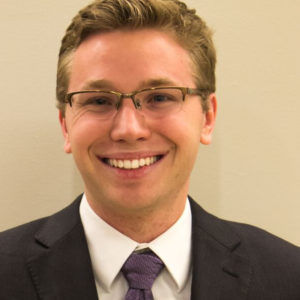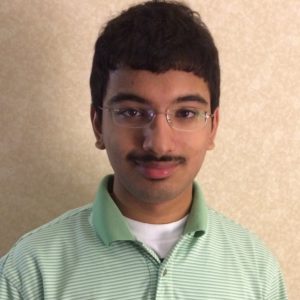Two juniors at Washington University in St. Louis have been awarded the Barry M. Goldwater Scholarship for the 2016-17 academic year.
The winners are Trevor J. Krolak, a biology and neuroscience major, and Krishna S. Paranandi, who is majoring in molecular biology and biochemistry. John Webb, a biology major, received an honorable mention in the competition.
“I believe the success of our students in winning these extremely competitive national awards is really grounded in the excellent faculty mentoring each of these students has received from very early on in their undergraduate careers,” said Grizelda D. McClelland, assistant dean in the College of Arts & Sciences, who works with students interested in the fellowship programs.
The Barry M. Goldwater Scholarship is considered one of the most prestigious awards for undergraduates planning careers in the sciences, engineering or math. Congress established it in 1986 to honor the longtime senator.
Krolak is pursuing a major in biology with a concentration in neuroscience in Arts & Sciences and a minor in computer science in the School of Engineering & Applied Science. He plans to complete a doctoral degree in neuroscience and then conduct biomedical research with a focus on nervous-system injury and repair.

He has worked in the laboratory of Aaron DiAntonio, MD/PhD, professor of developmental biology at the School of Medicine, since 2014. The ultimate goal of his work is to identify novel therapeutic targets for the treatment of neurodegenerative disease and injury.
Before joining the DiAntonio laboratory, Krolak worked for ECM Biosciences, a biotechnology company based in Versailles, Ky. There, he worked on the development of phosphorylation-site specific antibodies for use in biomedical research.
Outside of the classroom, Krolak is involved with the university’s student-run radio station, KWUR 90.3 FM, and the Washington University International Relations Council (WUIRC). He has helped lead WUIRC since his first semester in college, and he competes with the club’s model United Nations team at conferences on the collegiate circuit several times a year.
Paranandi is majoring in biology, with a concentration in molecular biology and biochemistry, and a minor in anthropology in Arts & Sciences. After graduation, he intends to pursue an MD/PhD in biochemistry and then conduct research on targeted diagnostics and therapeutics.

Since summer 2013, he has worked in the laboratory of Gregory Lanza, MD, PhD, of the School of Medicine. Under Lanza’s mentorship, he studies novel methods of molecular imaging and targeted drug delivery — methods that may one day permit the early diagnosis and treatment of diseases such as cancer and cardiovascular disease.
His work has included the imaging of blood thromboses, the development of new contrast agents for magnetic resonance imaging, and the use of targeted nanoparticles for the diagnosis and treatment of inflammatory conditions.
“Part of what has really fascinated me about Dr. Lanza’s lab is the interdisciplinary nature of the work. Synthetic chemists, cell biologists, electrical engineers and practicing clinicians work together to translate projects from the basic science to clinical care,” Paranandi said. “This dynamic interplay among scientists is what I hope to achieve in my own career.”
Outside of the classroom and lab, Paranandi works as a hospital volunteer and as a volunteer for the Campus Y. In his spare time, he enjoys playing golf and solving mechanical twisting puzzles such as the Rubik’s Cube.